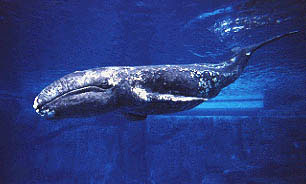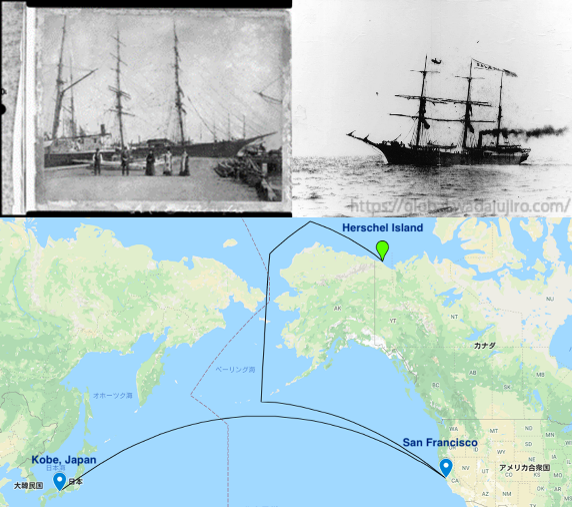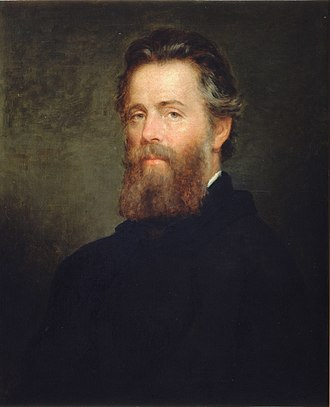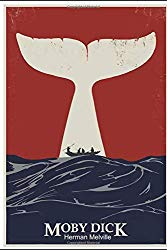When Japanese stowaway Jujiro Wada first set foot on American soil in 1892, he was immediately recruited into whaling.

Wada was a cabin boy and cook aboard the Pacific Steam Whaling Company’s bark Balaena from March 1892 until October 1894. During this time, the ship was hunting baleen whales in the North Pacific and Arctic Oceans.
For more details on Wada`s travel see Life History.

En Route from Japan to San Fransicso and Herschel Island (Bottom) New Bedford Whaling Museum
The 19th century saw a booming whaling industry, but in Wada`s days new lamp fuels had caused a decline in demand for whale train, and intensive hunting had sent whale populations into a decline. The increasing scarcity of the bowhead also was reason that whalers had changed their hunting ground to Arctic waters.
For more details on Wada`s travels see Life History.
From 1840 to 1860 were the peak years of American whaling, and it`s no coincidence that Moby-Dick was published in 1851. In Melville`s work the realities of whaling that Wada experienced are described at length.
The novel also evokes a picture of a multi-cultural crews, composed of somewhat rough and hard-to-handle men of the sea whose walks of life are all different but somehow all come together in whaling. The same can be said about Wada`s company at the Arctic whaling outpost Herschel Island.
Interestingly, Melville makes the following observation:
“That great America on the other side of the sphere, Australia, was given to the enlightened world by the whaleman. (…) all other ships long shunned those shores as pestiferously barbarous; but the whale-ship touched there. The whale-ship is the true mother of that now mighty colony. (…) The uncounted isles of all Polynesia confess the same truth, and do commercial homage to the whale-ship, that cleared the way for the missionary and the merchant, and in many cases carried the primitive missionaries to their first destinations. If that double-bolted land, Japan, is ever to become hospitable, it is the whale-ship alone to whom the credit will be due; for already she is on the threshold.” (Moby-Dick, Chapter 24)


For the area around Herschel Island, indeed the whalers were the first outsiders to visit regularly, then the large amount of whalers attracted missionaries, such Isaac O. Stringer.
They took it upon themselves to create order and peace in the rough male community. Closely following were traders, just as Melville asserts. The reference to Japan is also somewhat accurate, as one of the main reasons commodore Perry was sent to Japan in 1853 with demands to open up the country, was the very practical concern for the safety of American whalers in the Pacific waters near Japan. Until then anyone coming ashore in the closed country Japan, even shipwreck survivors, risked the death penalty. With America`s increased aspirations in Asia, this practice had to stop, first to save whalers, but also for the benefit of future missionaries and traders, who indeed followed the whalers at a short distance. So there`s some truth to this passage in Moby-Dick. For more about the life of missionaries at a whaling post, read about Isaac O. Stringer.
For more details on Wada`s travels see Life History.